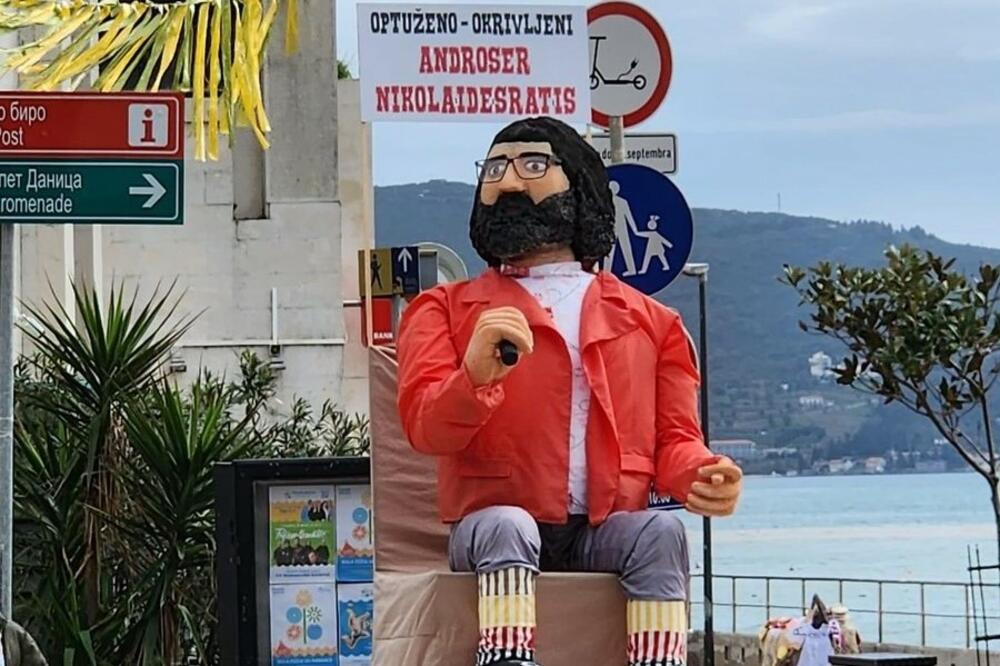Carnival is not naive, never...
Carnival is a game of canceling the everyday, a space of transgression, freedom, provocation, but which, apparently, at least in the domestic version, is not immune to our everyday hatred.
Carnival is also a zone of social reversion, it is no accident that in Bakhtinov reading is one of the key terms in the formation of European culture, but also an important line in the genesis of European literature.
Carnival messages are often games of meaning that can be confusing, so in the end, the ironic dimension of the whole play is revealed.
The grammar of the carnival is clear - of course it wasn't burned Andrei Nikolaidis rather than a doll, but why would anyone think that should be comforting? And where did Andrei come from?
Because you can see the "carnival verdicts" as a kind of social ventilation when, as usual, the puppets represent politicians or powerful people of any kind. The thing then makes sense - people tremble before the powerful every day, and the carnival is always a slip-up, then things, for one night, are completely different.
So - by choosing, you clearly mark the zone of your own frustration. And, someone decided on behalf of the exemplary citizens of the wonderful city that the strongest symbol of their frustration should be - a writer.
(I remember when a fierce resident of Novalja, the owner of a restaurant, about fifteen years ago, said to me, wanting to clearly explain to me which of them - You can also come to my place with Nikoladis. Obviously, the frustration we are talking about is deeper than it would appear at first glance.)
A society where it is possible for a writer's effigy to be burned at a carnival must, hell, be a happy and wealthy society. At least in the spiritual sense. If the writer is so important that he is burned at the carnival, it means that he is more important, as a more striking figure, than, say, numerous politicians and tycoons. And that is the definition of a happy society - when writers are much more important than politicians, when it is Betoven one, and princes - a thousand.
And maybe the noble citizens of Novo are burdened by some purely literary phenomenon. Andrej is, for example, a postmodernist who, as critics like to point out, is close to a certain Bernhardian nervousness, while the citizens of Novo are probably en masse turned to a more traditional script with elements of Pavić's poetics (ah, that's it), so basically this is a defense of (literary) sanctuaries.
The carnival doll is especially decorated with a colorful beard. It must also annoy them - where he is lucky, only a writer who dreams in ten is allowed to wear a beard...
Nikolaidis is not only one of the most important contemporary writers in Montenegro, but also a staunch anti-petty citizen. That's probably why his name rhymes so aptly with this kind of hatred and anger.
Someone will say that he was not burned as a writer, but as a "political analyst". Andrej also does this as a writer, his position in the text is clear, after all, that's why he experienced this "honor". Essentially, I believe that the fact that he is a writer, also Montenegrin, and with a Greek surname - enough for a headache - is the main reason for this status of Andrej Nikolaidis in Novi.
In their "reasoning" it is not clear whether they are more annoyed by the existence of the writer, or the mere fact that Montenegrin literature exists. It is that red rag that makes this consciousness go crazy.
And let Nikolaidis forget the English and European awards. This is probably the biggest literary award that a writer in Montenegro can receive. And to get his head out alive...
I may or may not like some of Andrej's text, some of his attitudes or choices, but that cannot change my fundamental perspective. Whenever I look at this burning doll from Nov, I first of all see a subtle and talented young man who thirty years ago was part of a great "conspiratorial" group that decided, nothing less than to permanently change the monotonous landscape of Montenegrin literature. And, by all accounts, she was quite successful in that... In the end - this is also proof.
Bonus video:





